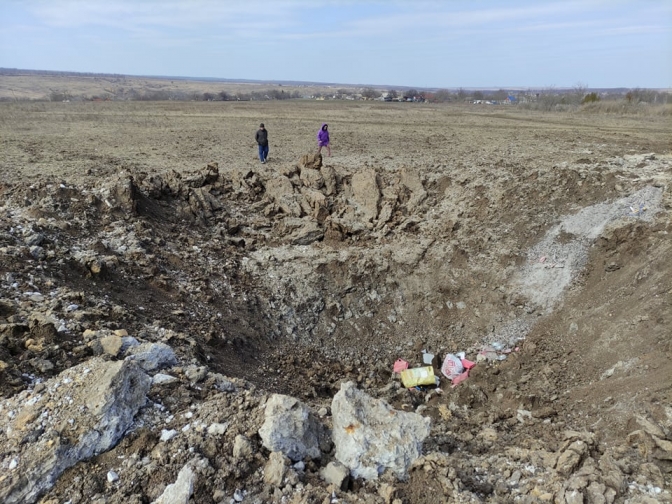
[For urgent updates please follow Ukrainian Freedom News on Telegram]
Tell us about the first days of the war.
I was at home with my children, went to work as always. Children had their studies, and I had a lot of household chores, pets, housework and so on. We didn’t think about anything and didn’t expect a real catastrophe to happen. On the morning of February 24, the children went to school as usual. And later, they asked in the chat: «Are we going to school or not?», to which the teachers replied – «What are you talking about! Stay at home and take care of your family.» The first days were spent reading the news. Many people went, as usual, to the market in Mariupol, past the units of air defence and the airport, which had been shelled on the first day. They saw how it burned, and reported. It was this way until February 26 or 27. Until one day, after the market, the Ukrainian military has barely let us back through the checkpoint. After that, we’ve no longer been to the city.
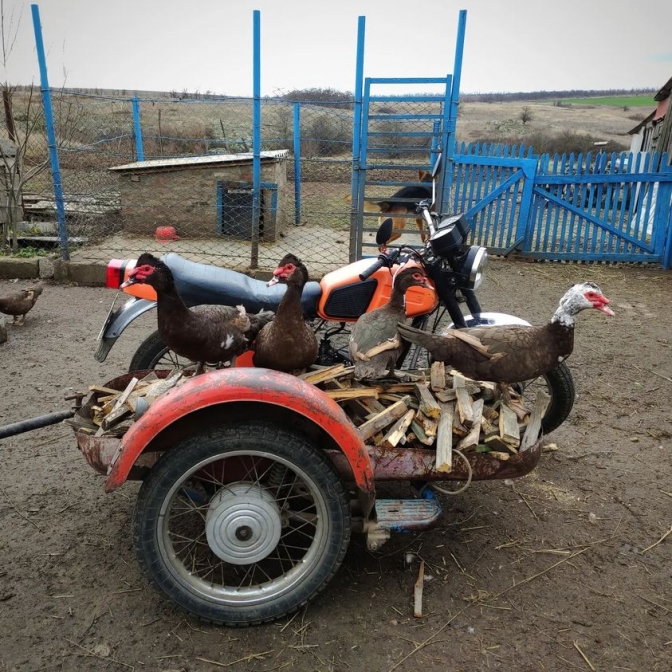
You say you were completely at work. But throughout January and February, there were a lot of disturbing news and media reports. How did you react to this threat? What was your vision of the situation?
I was quite sceptical about the prospect of war. There was an understanding that this could happen, but the news gave the impression that Russia was not ready yet. We realised that war was possible during the last eight years, but I thought that would not happen now. What infuriated us more was that our [authorities – ed.] were not preparing. Government officials have repeatedly said that the situation is being artificially inflated, explaining how it harms businesses and so on.
Read also: Twelve days in a basement. The story of a Mariupol resident who managed to escape the city
When Mariupol was shelled, the checkpoints were closed and it became clear what had happened. What were your emotions and actions?
I’m not very emotional, I tried to suppress all feelings. Almost immediately, I lost touch with my relatives who were in different Ukrainian cities, and that worried me a lot. On the morning of February 27, acquaintances from the same village came to me. It was agreed that we should unite and help each other to survive this war. First, they made a group in a Telegram and organized the delivery of water from a well to the elderly. One of those guys was in contact with the Red Cross. We assembled and managed to send a humanitarian aid vehicle to Mariupol. In peacetime, we went to the market to sell goods from our own farms. After the connection was interrupted, we gathered a lot of products. Milk, sour cream, potatoes, oil, canned food and a bunch of clothes – all this we collected and loaded into the car.
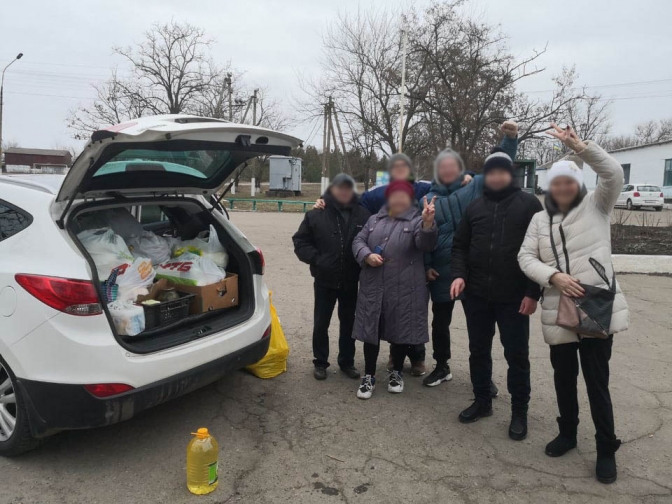
We went to Nikolske, where we had to meet with the Red Cross. It was February 28. We just waited for them and unloaded everything when the shelling started. It was heard specifically. We quickly left back. Saw a bullet-riddled car parked on the road, all crumpled. As we approached, a young man in military uniform looked through binoculars at the village. This is how I first saw the occupying soldiers. 500 meters further along the road stood a huge column of military equipment: KAMAZ, BMP and everything else. We were lucky that there was a turn before the column and we did not have to go past them. It was a shock to us. We did not expect the Russians to go so far. The latest evidence was that they were in Melitopol. In the evening, we were caught by the news that all the villages around were occupied.
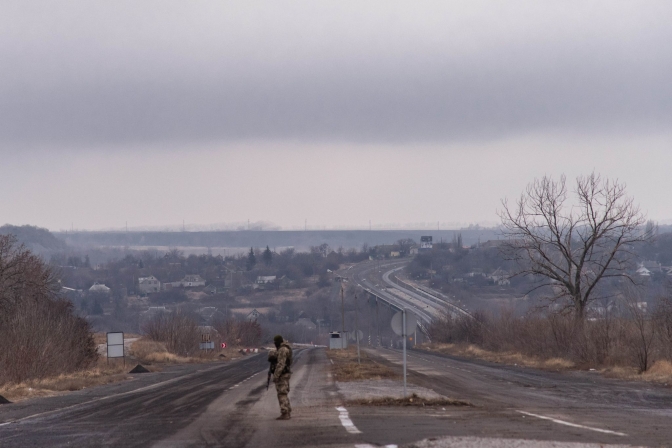
Did you hear anything about the fighting on the outskirts of Mariupol?
I did not hear about large-scale battles, only single shellings of columns. On March 1, we no longer had light. On this day, we heard shellings near the road to Mariupol. We saw that place later, there were two burned armoured personnel carriers of the occupiers. Two tanks were destroyed in a nearby village. But it was all… how to say it. Weak. Enemy troops were constantly moving from south to north, trying to capture Mariupol. There were such huge columns of equipment that these single losses did not matter.

What was the reaction of the locals when it became clear that everything around was occupied?
On the first day, one of our policemen went to the district centre to report to the new authorities. He was appointed commandant. It was somewhere between March 6-7. There are enough vatniki [Russian sympathisers – ed.] in our village. Many were happy that Russia would come. But they did not take any active action. However, if the DNR members came to the village and said «Show me who is for Ukraine here?», I am sure that there would be those who’d point with a finger. However, some in our district centre were clearly looking forward to the arrival of the enemy. A lot has been written about this on social networks. About the administration of the village, the head of the education department, about the director of the school and kindergarten. There, they literally met the occupiers with bread. Not even Russians, but the DNR members. Regular troops entered and moved on to the position near Mariupol, and the Donetsk «Ministry of state security», police and others entered the district centre. Everything was operative. On the first day of the occupation, a high-ranking official of their State Emergency Service arrived from Donetsk and was given a very warm meeting there. Locals took out all firefighters to solemnly meet the new helmsman.
Did you have to stop volunteering?
We no longer cooperated with the Red Cross. But on March 2, another story happened. Our acquaintances called us and asked to take a girl with two children out of the neighbouring village. The village was also captured, and the occupiers learned that it was the family of a soldier. Of course, people were afraid that they would be persecuted. To pick up this family, we needed to cross the route along which enemy vehicles were actively moving. My father and I understood that it was dangerous, but we couldn’t refuse. In the morning, we got in the car, it was 20 minutes to one place, but it turned out that we returned only three days later. We arrived at the place without meeting any souls, quickly picked up the family in the car and went back. Our car was marked with red crosses on all sides, indicating that we were not military. The morning was foggy, and passing the route to Mariupol, we saw a very large convoy of Russian equipment. A «Tiger» armoured car from the column stopped, soldiers jumped out and started firing at us without warning. We heard bullets clicking next to us. I still don’t understand how no one died... We pressed the gas and went back, hid in some courtyard, and artillery fire began.
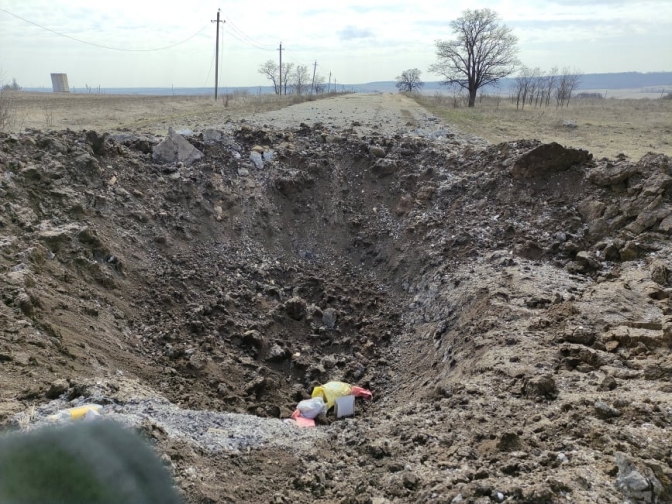
We sat for several hours and decided to try again. We got to the same place – no one was there. We drove 300 meters, saw a tank, heard a shot from something heavy. Everyone rushed from the car to the roadside, started shouting that there were children with us and asked not to shoot. Some Caucasians in the form of the Russian Federation approached us. They talked very correctly. Their commander was extremely suspicious but asked almost nothing. The car was completely shaken when they inspected it, and we were threatened with the order to shoot everyone. The girl was very scared and cried. My father’s phone was confiscated, and it suddenly called. The commander turned on the speakerphone and ordered to answer in Russian. My father was upset, nervous, said he had forgotten Russian. I had to answer. It was a neighbour, asking how to start a milking machine. The Caucasians realized that it was talk about cows and disconnected. While we were standing, columns of vehicles, KAMAZs, tanks, armoured personnel carriers, infantry fighting vehicles passed us. There was everything that was possible. A lot. After a while, we were told that if we went further that way, we would be killed. So we spent a few days with friends. We got home only on March 5.

How did you know you could go home?
We met a man who came from our village, he said that it’s possible to pass. Our way passed through another village. We did not recognize it. The occupiers tore down everything – trees, signs, fences. The road was broken by tanks, almost all electric poles were fallen. I think they did it on purpose to leave people without electricity. In this village, the invaders fired from a BMP at a paramedic station, everything was in holes. They burned down the village council, shot at the school from a tank, and robbed a shop. Solid barbarism.
Were there no Ukrainian military?
No, it wasn’t. The Russians said they were looking for Nazis. This neighbouring village has suffered greatly, it is difficult to convey emotions. But our village was lucky. They did not stay there, so everything remained intact. Only a civilian car was destroyed at the entrance. They accidentally stumbled upon the column and were simply shot without warning. I knew these people very well – ordinary guys. Now, their children are orphans.
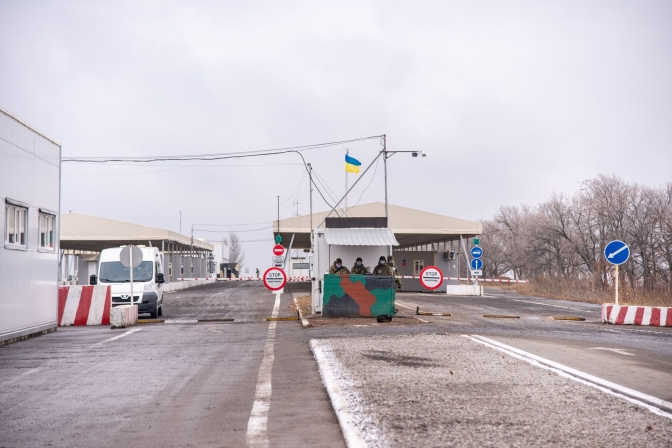
How did you come to the decision that you need to leave your homeland?
Sometime on March 13, rumors began to reach us that we could somehow go to Berdyansk. There was no information about the corridor. On March 16, when we saw columns of cars from Mariupol, we joined them and left. My parents refused to leave their native village. I took my father’s car and drove off with my two children, the girl and her two children, whom we took out in early March. We passed many Russian checkpoints but reached Zaporizhzhia the same day without much incident. Our goal was very simple – we were afraid of persecution for political reasons. All these stories about the Ministry of state security of the DNR, searches and purges began, and then, the head of the ATO union was killed in the district centre. We guessed that all this was also waiting for us.
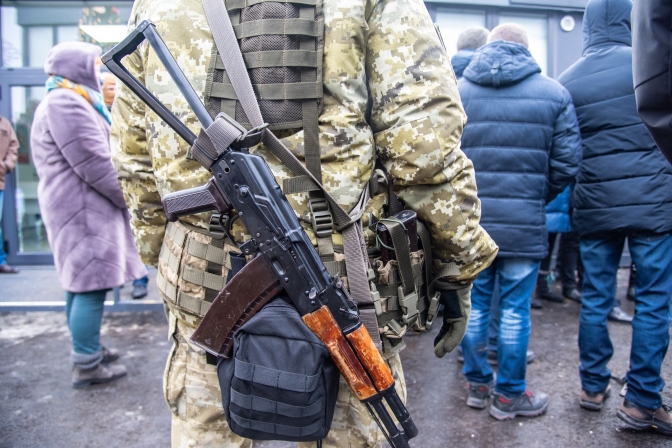
Read also: The woman who lost her home twice. A story of Iryna from Mariupol, published by «Azov»
How do the occupiers get information about pro-Ukrainian residents?
Elementary betrayal. In our case, everything was simple. In schools for children whose parents have the status of participant of military actions, there are certain benefits. There is a note in the magazine opposite the names of such children. I knew that in the district centre, the heads of educational institutions cooperated with the occupiers. They settled in kindergartens and military schools. I had no doubt that sooner or later, they would get the lists and we would have problems. Awareness of such a prospect put a lot of pressure on me.
What do you think, will you ever be able to return to your native village? And would you wish that at all?
I don’t really know what to do yet. Plans for the next few months are only for children. They need to continue their education. Common sense tells us that there will be nothing to do in our native village. There were still few people there, and even fewer will be left later. Of course, I believe in the Armed Forces, in victory… But these wounds are too deep.

This is what the village looked like before the invasion of the occupiers...
Ivan Stanislavsky, Translated by Vitalii Holich
Photo by the author and interlocutor
Full or partial publication of the text without the consent of the editors is prohibited and will be considered copyright infringement.
Follow us on Facebook and Instagram. Lviv Now is an English-language website for Lviv, Ukraine’s «tech-friendly cultural hub.» It is produced by Tvoe Misto («Your City») media-hub, which also hosts regular problem-solving public forums to benefit the city and its people.












